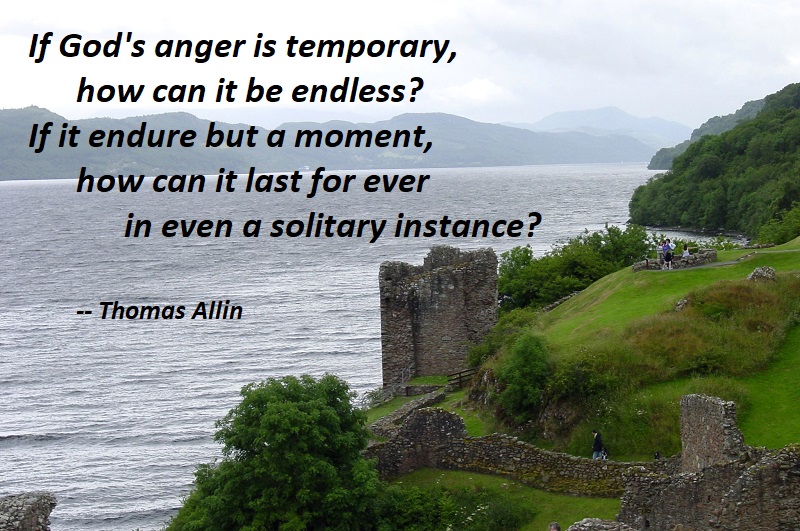Let us pause here for a moment to dwell on the significance of this fact of the limited duration of the divine anger, so clearly taught in the Old Testament. Take a few instances, “I am merciful, says the Lord, I will not keep anger for ever” (Jer 3:12). “His anger endures but a moment” (Ps 30:5), “while his mercy endures for ever” (Ps 136) — a statement repeated no less than twenty-six times in this one psalm. “He will not always chide, neither keeps he his anger for ever” (Ps 103:9). “He retains not his anger for ever, because he delights in mercy” (Mic 7:18).
But if this be true, what becomes of the popular creed? If God’s anger is temporary, how can it be endless? If it endure but a moment, how can it last for ever in even a solitary instance? I would invite our opponents fairly to face these plain and reiterated assertions: and to explain why they feel justified in teaching that God’s anger will in many cases last for ever, and that his mercy will not endure for ever.
— Thomas Allin, Christ Triumphant, p. 238
Photo: Urquhart Castle, Loch Ness, Scotland, July 11, 2003
